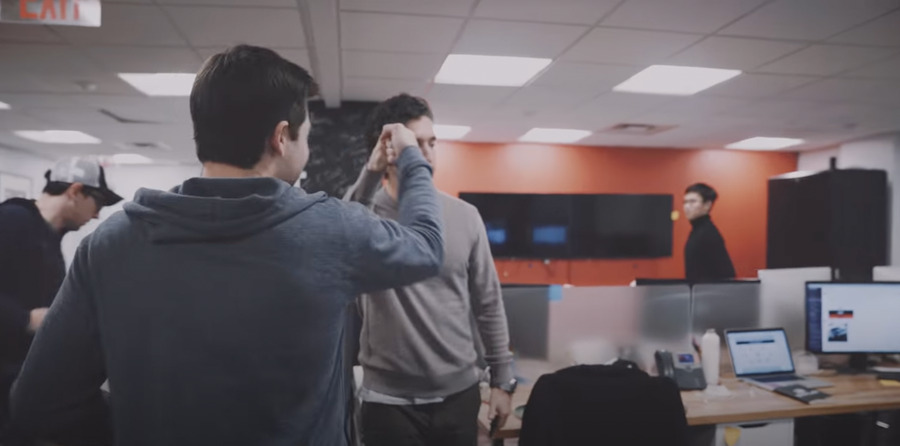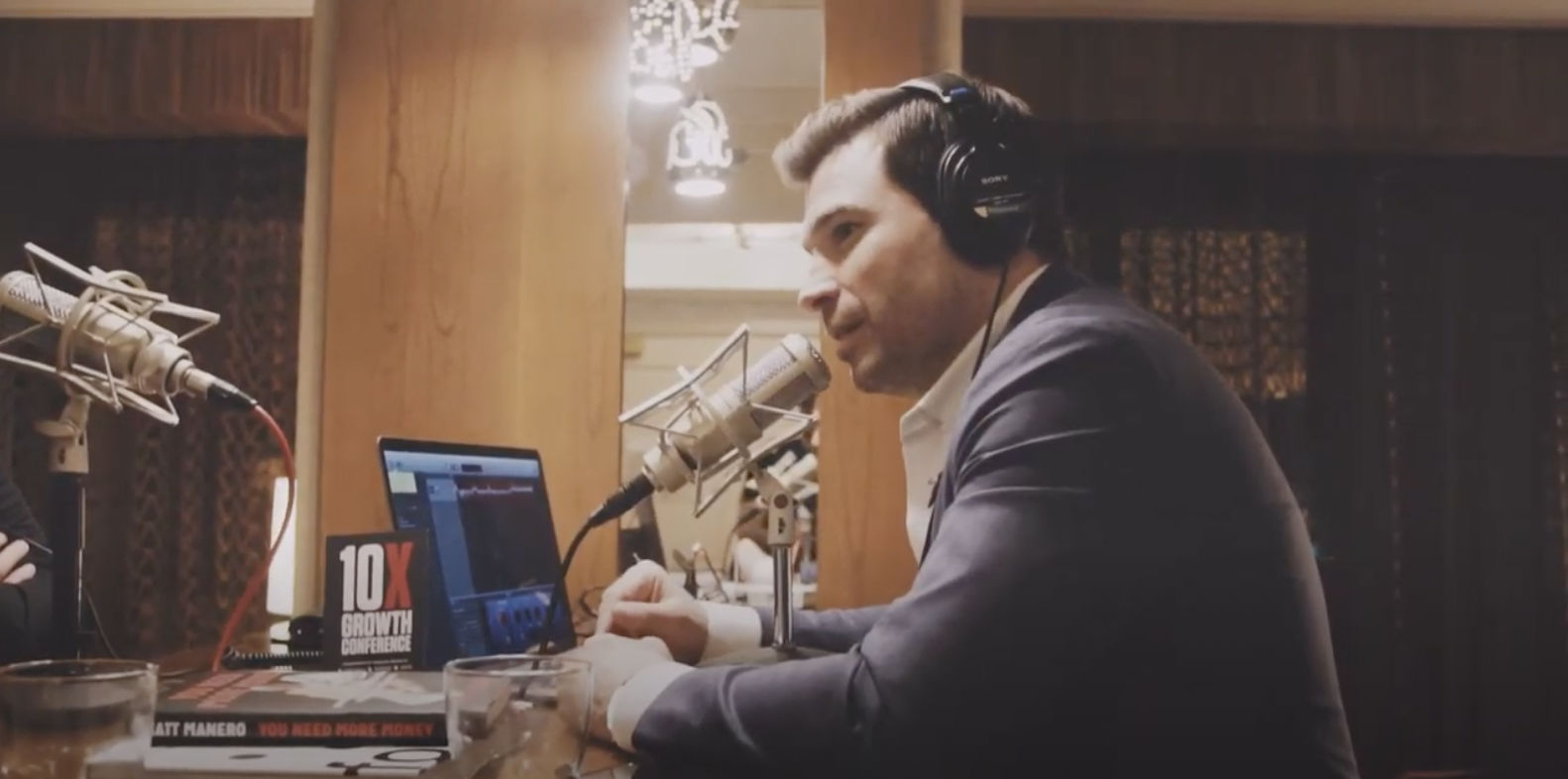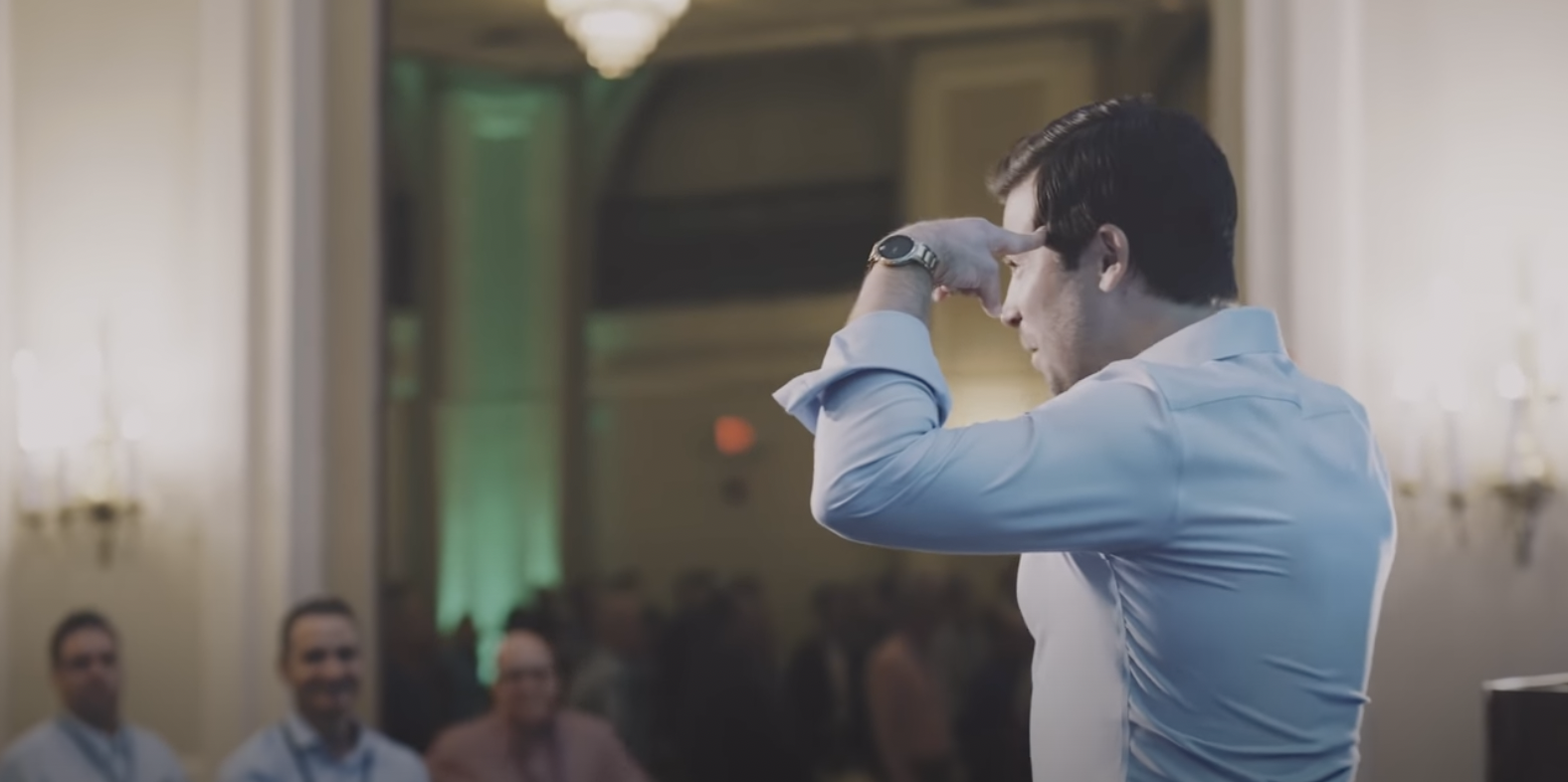Think failing in business is hitting rock bottom as a business owner?
The truth is there is something significantly more painful and destructive than failure.
CEOs of successful companies know what this factor is and avoid it like the plague.
To help you, I am shedding light on the one thing worse than failing in business.
As a CEO, being aware of this factor will prevent:
- Mental and emotional pain
- Terrible business plans
- Being taken down by competitors
Additionally, awareness of this factor could potentially save you from failure!
Failing is far from the top of the list of bad things that could happen to you.
Actually, There Are Many Things Worse Than Failure
Alright, I lied a little bit.
The truth is there are many worse things that can happen to a business owner than failing.
Shocker?
Considering how most people talk about it, you would think business failure is as bad as it gets.
However, failing is the least of your problems.
Failing Is Not What People Think it Is
Failing is simply not getting the outcome you anticipated when you anticipated it.
There is NOTHING inherently wrong with not getting the outcome you want when you want it!
For example, you might want to raise $100,00 of investment money for your startup but only manage to get $50,000.
Did you technically fail to get $100,000? Yes. However, that is not necessarily a bad thing.
Moreover, failure is simply missing the mark when you want to hit it, and there is NOTHING inherently wrong with this.
When you remove the emotion of not getting what you want when you want it, failure is not a difficult or painful concept to swallow.
Failure Is Not a Death Sentence
Contrary to popular belief, failure is not a death sentence.
When people look at new business or entrepreneurship failure rates, they imagine the CEO going from living the New York City high-life to absolute destitute.
However, that is far from reality!
In reality, most entrepreneurs who experience failure (which all of them do) do not end up on the streets.
The only time failure is a death sentence is when the entrepreneur gives up after failing.
Just because they missed the mark once or twice does not mean they are in the grave forever.
While they might get set back, failure does not inevitably lead to business demise.
-4.jpg?width=900&name=1%20(1)-4.jpg)
Business Failure Statistics Are Very Misleading
Most business failure statistics are misleading.
Better yet, they do not tell the entire story about failing businesses.
For example, most online articles say the first-year small business failure rate is 20%.
The ten-year failure rate is about 70%.
Then, those articles go on to list all the supposed reasons why medium and small businesses fail, including poor management and reckless spending.
However, these failure statistics are very misleading!
Always look beyond basic stats to get an accurate picture of business failure.
Just Because You Fail Once Doesn't Mean You Fail Forever
First, business failure statistics do not tell you what an entrepreneur does after they fail.
For example, does the entrepreneur’s business model fail once, get reconfigured, and then they try again later?
Unfortunately, most failure statistics do not tell us the answer.
In my experience, most business owners have to experience a failure, or at least some significant challenges, before sustaining themselves.
Furthermore, statistics forget to tell you the failure rate AFTER a business owner’s first failure.
Just because many people fail on the first try does not mean those same people do it again on the second, third, or fourth try.
It Usually Takes Several Tries to Get a Win
Second, most businesses fail or, at least, hit stumbling blocks when first coming out of the gates.
Unfortunately, most business owners believe that the most successful CEOs never fail.
Do you think major league baseball players hit home runs when they first joined the little league?
Of course not.
Why would you assume that business professionals hit home runs on their first at-bat?
Many CEOs Pivot
Business failure stats do not tell you how many CEOs had a business, gained new insights, and then pivoted accordingly.
Unfortunately, many business articles consider a pivot a failure!
In reality, a pivot is simply making improvements.
Does making improvements sound like failure to you?
The Most Successful Entrepreneurs Fail the Most
Finally, many people have heard the infamous Michael Jordan saying: I’ve failed over-and-over-and-over-again in my life; that is why I succeed.
That is equally true for business owners as NBA players!
The more times a person fails, the more learning opportunities they have.
Each shot Michael Jordan missed enabled him to learn something new about the game.
Without those misses, he may not have made the NBA.
Remember, Michael Jordan did not even make it on to his high school basketball team!
Furthermore, the most successful people are the ones who fail the most, learn from their failures, and then apply what they learned to future successes.
-2.jpg?width=899&name=1%20(1)-2.jpg)
The 1 Thing Worse Than Failing in Business
I did say that there are many things worse than failing in business.
However, there is one thing that is significantly worse than business failure.
It is as bad as it gets!
The one thing that is far and away worse than failing in business is the fear of failing in business.
Believe it or not, the fear of failure in business causes more destruction than actual failure.
Moreover, the fear of failure is one of the top reasons businesses fail!
Additionally, the fear of failure strikes almost EVERY CEO in the world, whereas failure itself only strikes a fraction.
The Fear of Failure Brings Out Negative Emotions
The fear of failure usually brings out negative emotions.
However, feeling negative emotions is not the problem.
Instead, the problem is acting based on negative emotions!
Not every CEO acts according to emotions, but a significant amount does.
The moment a CEO acts out of negative emotions is the moment things go downhill.
When You Live According to Emotions, You Fail.
Simply put, you cannot live life or lead your business based on negative emotions!
Unfortunately, nothing good ever happens when you make decisions according to emotions.
For example, imagine I was so angry over something I saw on the news that I decided to sucker-punch the next person walking down the street.
Or, imagine I was so anxious about an economic recession that I sold all my shares in a business, then the recession never happens.
CEOs do not make good decisions when they make them based on emotions.
Making decisions based on fear-based emotions is one of the most common reasons businesses fail.
How to Stop Suffering From the Fear of Business Failure
Will you likely suffer from some business failures?
Yes.
Importantly, remember failing in business is not NEARLY as bad as people make it out to be.
Failing does NOT mean losing all your possessions and living on the street.
It can happen, but that is very rare.
You could also lose your nine-to-five job and live on the street.
In reality, failing in business is simply missing the mark when you want to hit it!
However, suffering from the fear of business failure is unnecessary.
Fearing failure leads to personal and business destruction.
In many cases, fearing failure leads directly to failure!
That said, here is how to stop letting the fear of business failure overwhelm you.
Pay the Price of the Business Success Process
First, train yourself to see failure as an okay part of the business success process instead of something to fear.
Remember, failing DOES NOT necessarily mean losing your business and starting from scratch again!
Failing can be as simple as not hitting fundraising marks or getting the marketing engagement you wanted.
That said, train your mind to see failure as part of the journey to becoming a successful business owner.
Training your mind is about ending the cycle of endless negative thoughts about failure.
To end the cycle, break your ingrained, habitual thought patterns regarding failure and swap them with positive thought patterns.
In Steven Pressfield’s book, The War of Art, he writes, “So you are taking a few blows. That’s the price to pay for being in the arena and not on the sidelines. Stop complaining and be grateful.”
From now on, think of failure as part of playing the entrepreneurship game.
While everybody wants to play the game, few will pay the price of playing.
Will you pay the price for the sake of being in the game?

Practice Getting Uncomfortable
Part of the reason why CEOs are so anti-failure is that failure is uncomfortable.
Nobody wants to be uncomfortable, thanks to human nature’s anti-comfort programming.
While nature despises discomfort, being uncomfortable is actually a good thing.
Being uncomfortable pushes you to learn and adapt to new situations.
Unfortunately, the modern world is more comfortable than ever!
These days, many people get in their car every morning, sit in an air-conditioned office, and have food on demand.
Then at the end of the day, they get back in the car only to slug on the couch all night.
It does not get more comfortable than that!
That said, practice stepping outside of your comfort zone regularly.
For example, put together a marketing campaign that feels risky, but you are excited about it!
The more you step out of your comfort zone, the less discomfort-averse you become.
Being okay with discomfort makes the thought of failing easier to manage.
Dump Negative Thoughts Out of Your Head
One strategy I do almost every day is a brain dump.
Think of brain dumping as a form of journaling- at the end of the day, dump whatever thoughts you are thinking into the journal.
Writing thoughts down instead of letting them swirl around in your head creates distance between you and them.
With more distance, the thoughts are less frightening.
More importantly, distance allows you to think your thoughts through instead of getting emotional about them.
Whether or not I am anxious about failure, I almost always do a daily brain dump.
In addition to helping get fear out of my head, brain dumping helps me articulate my business visions.
I almost always have genius business ideas swirling around in my head; dumping those thoughts out of my head and onto paper solidifies them.
Once the ideas get solid, I stand a better chance to manifest them in reality.
Listen to Your Mom's Old Advice
Your mom was right when she told you it is crucial to hang out with the right crowd!
The people you surround yourself with influence the way you see the world.
Unfortunately, most people are highly emotional about failure.
When they think about failure, they think about running for the hills!
You do not want others' emotional responses to failure negatively influencing you.
Therefore, be intentional about who you surround yourself with and listen to.
Or, at least be mindful of with whom you discuss failure.
Intentionally Try to Fail
From now on, try to fail at least once per month.
I am not telling you to withdraw all the money in your business checking account to go on a vacation in Bora Bora instead of paying bills.
When I say try to fail at least once per month, I mean create a new business challenge to overcome.
Think of it like this- Imagine you are a soccer player who wants to be the best in the world.
You can play one of three teams this weekend: The first team is worse than your team, the second team is equally as good, and the third team has a better record than your team.
Even though your odds of failing are higher, you should play the third team.
Playing the third team creates an opportunity to challenge yourself and ultimately learn more.
Who cares if you fail to win the match if you learn from it?
Your business is not the same as a soccer match, but the idea is to come up with monthly business challenges.
For example, reach out to a potential client who initially seems out of reach.
Even if you do not get the potential client’s attention on the first cold call attempt, you will learn more with each additional try.
Most importantly, always pick challenges that will take you out of your comfort zone.
Final Thoughts on What Is Worse Than Business Failure
The infamous stoic philosopher, Seneca, once wrote, ‘we suffer more in imagination than in reality’.
When it comes to business failure, this could not be closer to the truth!
Most business owners suffer more from the fear of business failure than anything.
Worst of all, fearing failure increases the odds a CEO does fail.
Living in fear of failure will not do you well.
Failure is simply missing the mark when you want to hit it. There is nothing inherently wrong with that!
You May Also Like
These Related Articles

How To Overcome Fear of Business Failure & Use It As Fuel

7 Ways That Fear of Failure in Business Crushes Your Potential




